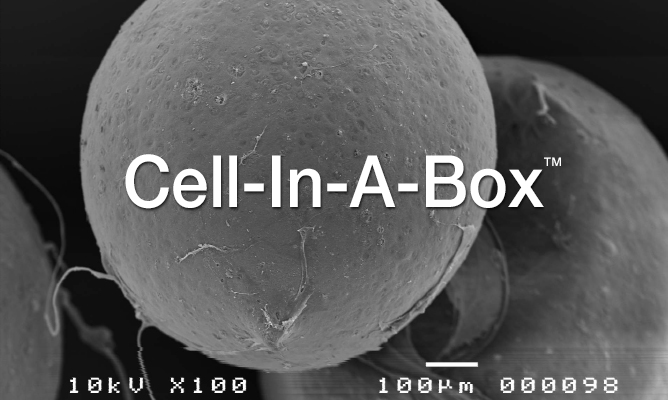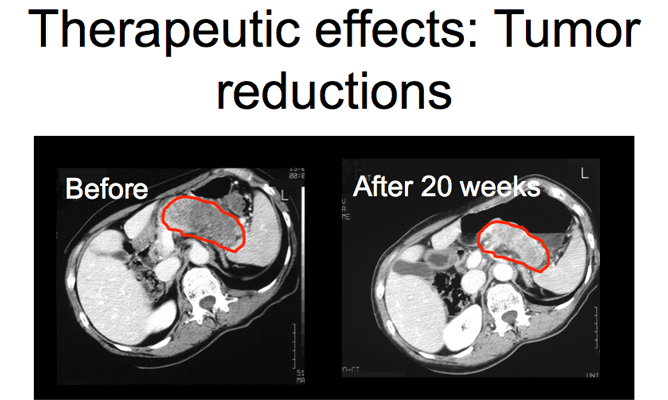
Nuvilex And Medical Marijuana Sciences: Furthering Cancer Research
Cancer is a disease that affects nearly everyone in the developed world in some way or another. 1 in 2 men in the United States are predicted to develop cancer in their lifetimes. Some forms of cancer, such as pancreatic and brain cancers, are especially hard to treat with conventional technologies. Nuvilex, a biotechnology corporation based in Maryland, is looking to change that.
The Story Of Nuvilex’s Cell-In-A-Box® Technology
Nuvilex was started less than a year ago to commercialize their brand of encapsulation technology, known as Cell-in-a-Box®. The company is led by Kenneth Waggoner, an experienced attorney who provided services for many biotech clients and held leadership positions in other companies throughout his career.
The executive team is populated by several accomplished individuals, including Dr. Gerald Crabtree, who assisted in the development of many cancer drugs during his 50-year career.
These individuals are connected by their desire to help others and their belief in the Cell-in-a-Box® technology, which was acquired from Austrianova, another biotechnology company with offices in Asia.
How Does The Cell-In-A-Box® Technology Work?
Cell-in-a-Box® is the name for the live-cell encapsulation technology used by Nuvilex to develop treatments for cancer and diabetes.
“This would not only help reduce side effects, but concentrate anti-cancer effects where they are needed most.”
In the case of cancer, encapsulated cells would be injected near a large tumor. These cells produce enzymes which activate prodrugs, inert compounds requiring activation to have their beneficial effects.
With traditional chemotherapic drugs, this would not only help reduce side effects, but concentrate anti-cancer effects where they are needed most.

The capsules in which the cells are enclosed are made of cellulose, so depositing them into the body does not incite an inflammatory response. The encapsulated cells can remain in the body for at least two years before degrading.
These properties also make Cell-in-a-Box® especially promising for treating diabetes. If insulin-producing cells (produce insulin in response to elevated blood glucose levels) could be implanted into a diabetic patient, the disease could potentially be controlled.
Medical Marijuana Sciences: Cell-In-A-Box® with Cannabinoids
Nuvilex is keenly aware of cannabinoids’ anti-cancer effects. Given their ability to inhibit cancers through a wide variety of mechanisms, such compounds are ideal to integrate with the Cell-in-a-Box® live cell encapsulation technology in developing treatments for serious and deadly cancers. Medical Marijuana Sciences (MMS) is a wholly-owned subsidiary of Nuvilex created specifically for this research.
This subsiduary of Nuvilex is led by a strong team of experienced individuals. Dr. Mark Rabe, Chairman of Medical Marijuana Sciences’ Scientific Advisory Board, is well-versed on the anti-cancer and analgesic properties of cannabis. He has presented at numerous conferences regarding the topic and is active in California in the use of cannabis for treating various ailments.
Also on the Board is Dr. Garret Yount, President of The SETH Group and colleague of Dr. Sean McAllister. MMS is currently working with Dr. Richard Hyslop and his colleagues at the University of Northern Colorado to perform initial studies related to the development of live-cell plus cannabinoid cancer therapies.
Clinical Progress Of The Cell-In-A-Box® Technology
Nuvilex is intent on applying their encapsulation-based therapies as soon as possible. The therapy has already proven viable for treating advanced pancreatic cancer.
A 2001 study in which 14 patients were treated with Cell-in-a-Box® plus the well-known anti-cancer drug ifosfamide, patients responded much better than with conventional treatment with gemcitabine, the only drug approved by the FDA at the time the study was done.
Results included a doubling of the one-year survival rate from 18% to 36% and a more than 755 day improvement in average survival time. Because the live-cell encapsulation was employed, it was possible to use much lower than normal doses of ifosfamide, and as a consequence, no drug-related side effects were seen.
“A Phase 2b trial in Australia will compare the effect of Nuvilex’s encapsulation therapy versus the best available conventional therapy…”
Nuvilex is preparing to undertake further trials in pancreatic cancer to explore this treatment.
A Phase 2b trial in Australia will compare the effect of Nuvilex’s encapsulation therapy versus the best available conventional therapy in improving survival of pancreatic cancer patients.

In addition to fighting cancer specifically, alleviating the symptoms of pancreatic cancer is important to Nuvilex’s leadership team. For this reason, they are working with Translational Drug Development in Arizona to prepare studies for on reducing the unbearable, untreatable pain and accumulation of abdominal fluid that occur in advanced pancreatic cancer cases.
Dr. Gerald Crabtree remarked that complications from cancer are rarely addressed when developing cancer drugs, but this is one of the first times such complications are being substantially researched in addition to direct anti-cancer effects.
Great potential exists for the applications of the Cell-in-a-Box® live-cell encapsulation technology, especially when combined with the natural power of cannabinoids. As the research on all fronts continues, more will be revealed about how to best utilize this innovation.
Nuvilex is a biotechnology company focused on developing and preparing to commercialize treatments for cancer and diabetes based upon a proprietary cellulose-based live-cell encapsulation technology, called Cell-in-a-Box(TM).This unique technology will be used as a platform …
Medical Marijuana Sciences, Inc. (MMS) is a subsidiary of Nuvilex that was established in early 2013. The initial mission of MMS is to develop treatments, based on constituents of Cannabis, for two of the most …

